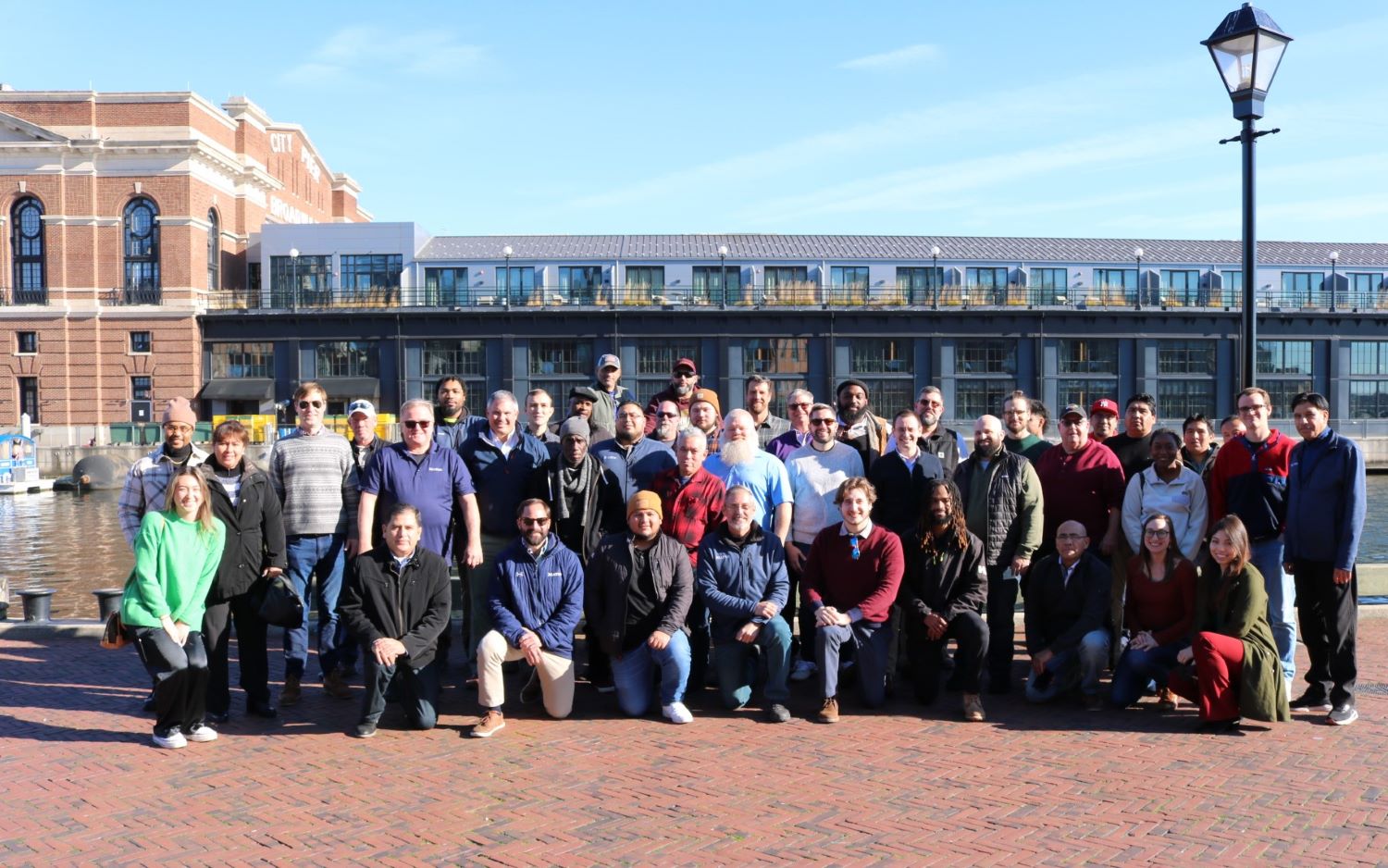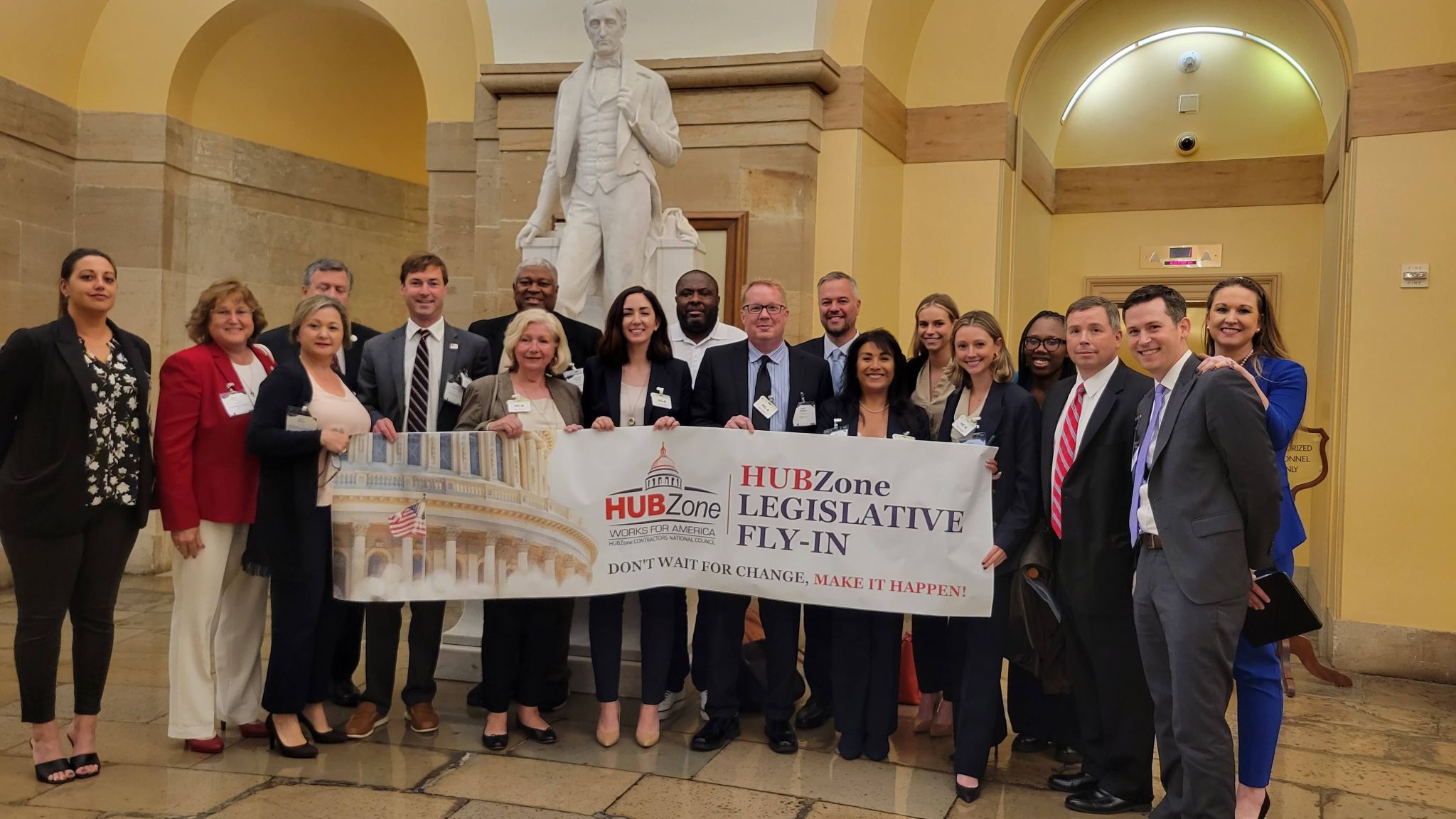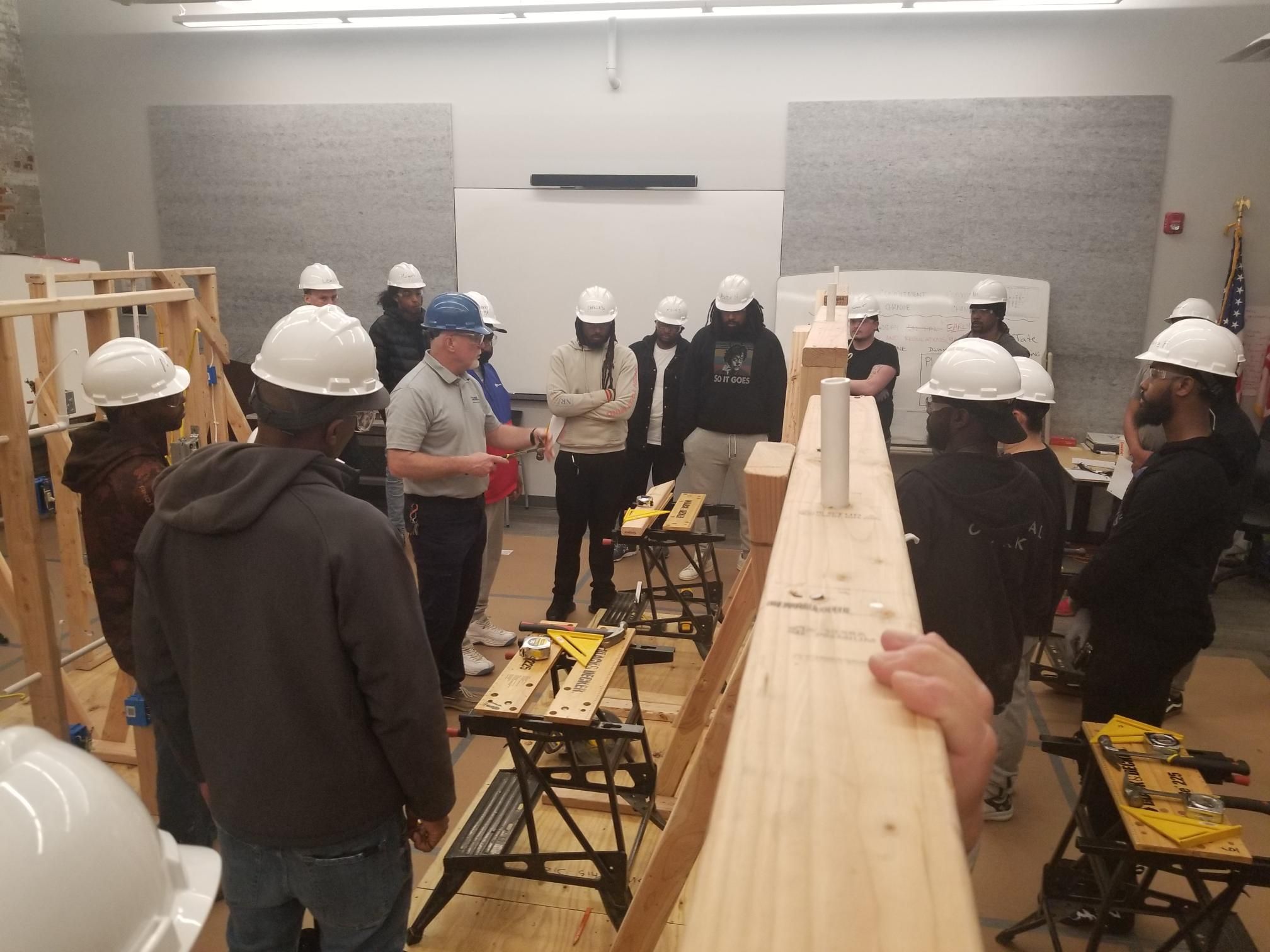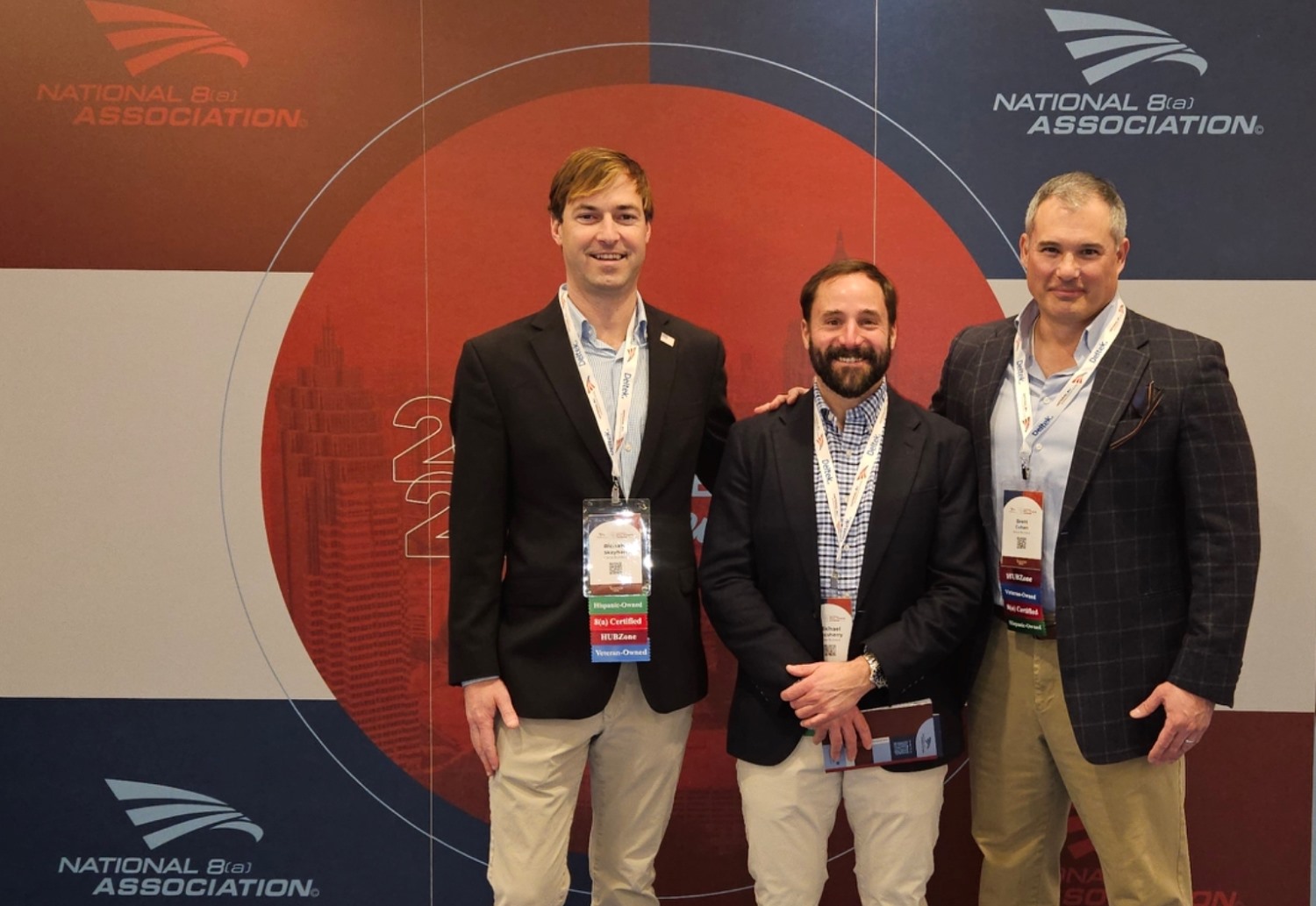Carve Out a Niche – Matos Builders and the Magic of Specialization
“As business owners, many of us know that specializing in certain areas is more desirable than being a generalist in many areas. That’s true from a consumer perspective; as consumers, we’d like to work with specialists. From a business owner perspective, the more we specialize, the better business we can actually run,” said Simon Zryd, Denver Business Coach founder.
And that’s true, the customer, and in this case of federal contracting – the government, they always want to hire people who can get the jobs done. And in an area like specialized construction, it requires specific knowledge and technical expertise to install, repair, and maintain a quality of particular product.
There are some key players in the arena right now, but we will talk about a rising star – Matos Builders, the company that mastered at laboratory construction, a niche that they have carved out. However, before diving in some important lessons of the two founders – Micheal Macsherry and Richard Skayhan, let’s trace back to how Matos Builders came to be.
From Sub to Prime – Dynamic Duo Take on Federal Space
Born and raised in Baltimore, Micheal Macsherry and Richard Skayhan were high school friends. Micheal was a Personnel Specialist the Army Reserves an MP unit; he ended up helping out with some of the constructions in Haiti where he was trained.
According to Michael, “I did landscaping a lot growing up, but most of my construction experience came from on-the-job training, working with Mattis and working with Rich.”
As for Richard, he knew a bit more about construction. He started working on construction sites during his summers as a teenager. Beginning as a laborer at 14, he learned different trades over the years. After college, he worked in project management for a developer. However, his work slowed down during the recession in 2008-2009.
Got out of the Army Reserves after around 10 years, Micheal was looking to get married to and was trying to find a job in the middle of a recession. One day, Micheal and Richard were hanging out, and a thought of starting a construction company popped up. The duo were 25 when they started Matos; it was kind of an ambitious endeavor from the get-go.
Their intention was to really target customers that don’t have the same swings in spending as some of the private sector people do. They began by serving non-profits, local hospitals, and laboratories, which became their niche before expanding into the federal sector.
In order to build past performance, the duo kicked off doing some subcontracting for some corporations on some of the local military bases. A couple of years into being in business, they applied for the 8A program and got accepted. That’s when they first got the taste for the federal sales cycle.

“It was about a year and a half, I think, before we got our first award,” said Richard Skayhan.
Their initial success came from a connection who introduced them to a contracting team at the Army Research Laboratories. Thanks to their specialization in lab space, they were readily accepted. They were awarded an IDIQ contract and began receiving task orders. Excelling in their work, they leveraged this success to attract other agencies, leading to a snowball effect in their business growth.
According to Micheal, “Once we got that first job, that really validated us to the United Construction Officers. You know, once we got that one guy to take a chance on us, everybody else was a little bit more willing.”
Along the road of building up the companies from scratch, Matos Builders has been awarded many certifications. Now, Matos Builders is a HUBZone and Veteran-owned. Talking about certifications, it really helped companies federal contractors to access more opportunities. And Matos Builders is a strong advocate for the HUBZone program.
The Rule of Two Contrarian – Accessibility Advocate
According to Ricky Howard, the founder of DoD Contract Academy, even if the government doesn’t ask for HUBZone or woman-owned businesses specifically, if you fall into those categories, you can recommend them. Sometimes, companies might choose another business that fits the criteria, just to show that there are multiple options available within HUBZone, woman-owned, or service-disabled veteran-owned small businesses (SDVOBs) categories.
Matos Builders is one typical company that really appreciate the opportunity these certifications give. The constructor has just been awarded a HUBZone of the Year by the HUBZone Council. HUBZone has helped them out in many aspects.
Richard shared that, “We’ve actually been pretty active over the past couple of years on lobbying efforts with the HUBZone program. I’m sure you know it’s the one program that most agencies don’t meet their goal on, and if you take a step back as far as impact on a neighborhood, it’s the most impactful program.”
Richard suggests that businesses with HUBZone certification have a chance to help their local communities by spending money nearby and hiring local residents. While they could hire Ivy League graduates, Richard emphasizes the importance of giving opportunities to people in the neighborhood.

The “rule of two” in government contracting refers to a requirement that contracting officers must have a reasonable expectation of receiving offers from at least two responsible small businesses, capable of performing the work at a fair market price, before a contract can be awarded.
This rule aims to promote competition and ensure that the government gets the best value for its procurement needs. However, in the context of the HUBZone program, some advocates argue that the rule of two can be a barrier to businesses in historically underutilized areas, hindering their ability to compete for contracts effectively.
And Matos Builders is a firm believer that they should remove the rule of two for the HUBZone sole source and open that up, try to get people to meet their goals.
The company, along with Congressman Elijah Cummings and the ABLE Foundation in Baltimore, advocated for the HUBZone program and sought ways to improve its effectiveness and accessibility. After Congressman Cummings passed away, they connected with Senator Ben Cardin’s small business committee, which introduced him to the HUBS Council and the National 8A Association.
These associations provided valuable support and knowledge for the company. Richard said that the remove of barriers like the “rule of two” will make it easier for agencies to meet their HUBZone goals and uplift underprivileged areas.
Having these under your belt is a plus, but to find and win contracts from the federal government, it’s just a part of a larger picture.
Want to Win Contracts? – You Have to Specialize
In the phase of finding works, Matos Builders monitor forecasts and respond to sources sought. After that, they try to find projects that are a good fit for them in terms of size, scope, location, and award method.
And one thing to keep in mind that Motos Builders has been very specific in the services that they offer.
“We find that we have a pretty strong technical response; a lot of our past performance is pretty specific. So, we try to find projects that are a good fit, and we rely heavily on our technical expertise to separate ourselves from the pack,” said Michael.
They are able to do this because the contractor already has a niche that is specialized, which is laboratory construction.
When bidding on a project, presenting a capability statement claiming you can do everything might actually harm your chances, according to Ricky Howard. It’s crucial for businesses to research what the government is specifically looking for.
For instance, if the government is seeking laboratory work contractors, focusing on that niche rather than listing a wide range of capabilities is advisable. Specializing in the required area, such as laboratory renovation or construction, aligns better with the government’s preferences and increases your chances of success.
Richard Skayhan continued, “And especially when you get into the specialized construction, it’s like our employees know it, we know who the subcontractors are. You get into this niche world where you kind of know who everybody is, and it’s established. It’s not like you’re trying to figure it out when you get the job.
He added, “We kind of grew up in labs, and we were still living labs, and now a lot of our business as a result of that is repeat, which is great. We’ve established ourselves with customers; they like us, they know what they’re getting when they come to us. But that took some time.”
Not Fast-Paced Environment – The Federal Space Takes Process

Over the past decade, small businesses have experienced a decrease in their participation in selling to the U.S. federal government. Despite a notable achievement of $159 billion awarded to small businesses in 2022, a report indicates that the number of small businesses receiving federal contracts continued to decline sharply, maintaining a trend observed over several years.
The game is getting harder in many angles, to avoid being eliminated in just the first round, Richard Skayhan advises businesses should look at a five-year plan if they want to get into the federal space. It’s crucial to figure out who’s buying what you sell, how they buy it, and how to market to them. When you know specifically about the buyer, it will be easier for you to capture the chance to win.
All sales data related to the public sector is publicly available. This means that you don’t have to devise your own method of selling to the government; you can access the data directly. As long as you’re willing to analyze how your competitors are performing or examine which agencies are purchasing what you offer, the information is readily accessible for you to utilize.
And one thing is federal is wildly different comparing to private. As shared by Richard Skayhan, when working for a private owner, and a lot of times they just want get the building done as fast as possible so they can start collecting rent.
But when it comes to federal government, it’s a long game. The government contracting process can be slow and frustrating. Even a small approval delay for one part of the project can hold up everything. This can be tough for people used to faster-paced environments.
According to Ricky Howard, a mixture of not knowing about the opportunity, not knowing how to do it will add you to the group of businesses that fail in federal space.
What’s more? On the road of working with the government, it’s a non-stop process to generate that recurring revenue with the government. Even masters like Matos Builders has to constantly change to adapt with the ever evolving landscape.
“It’s a non-stop process, you’re always learning,” said Michael.
Richard added that, “It took a good three years to really figure it out. But it’s constantly being refined, and then it really kind of started working for itself like five years in.”
“It’s just an incredibly long cycle, but then once the wheel starts going around, it repeats and repeats, and the concept keep getting bigger, then the opportunities get better, and everything just improves. We’re definitely in it, but it took at least three years to get the wheel spinning,” said Richard Skayhan.
He also said it’s important to stay focused and don’t be afraid to start small. “There’s nothing wrong with it; you don’t need to grow a business overnight. It can take time, and oftentimes, that proves to be the better path. That’s the path we took, and it’s worked very well,” shared Richard Skayhan.
Don’t Put Your Fingers in Everything – Hire People for the Professional Tasks
When it comes to federal contracts, proposal writing is a daunting task, sometimes people don’t win because they don’t know how to perform this phase. You technically could win any solicitation if you write a great proposal. In the story of Matos Builders, they did not realize the importance of the proposal writing. They were writing proposals, but they weren’t winning.
“We were not winning, and we were getting all the debriefs, and it just became apparent that proposal writing was way more of a science than we had given it credit for, it’s a skill. We’re builders, we’re great at getting the jobs done right, not necessarily bad proposal runners, but there are definitely better proposal writers,” said Richard.
That’s why now they have a proposal writer, but prior to that, they think proposal writers were a little lackluster.
Michael continued, “You can’t be the best at everything. Part of being successful is finding people that are better than you at certain things and hiring them and putting them in place to let them execute.”
Hiring somebody that understands the structure and can do compliance matrices, reviewing them, making sure they’re hitting the nuances of the FAR and understanding everything, that is extremely beneficial. However, offloading the whole thing to a professional proposal writer that doesn’t understand the technology or the solution or the construction project, which could be a recipe for disaster, according to Ricky Howard.
“But a recipe for success is where you have somebody like that, whether they work for you or you outsource it, and you’re working with them to ensure what you know is in there and it’s correct, and then they can take that and put it in the right format,” said Ricky.
In Matos Builders’ case, they have built the whole team with 50 people. The project management team will chime in on a constructability plan or a workout plan, the compliance matrices. It’s a back and forth efforts between the experts.
It’s a Relationship Game

When trying to get their feet wet, the company was frustrated because their company’s previous success in the private sector didn’t help as much as they hoped in federal contracting. They needed a CPARS rating (C-bar) to get federal contracts, but you can’t get one without already having a federal contract.
However, they eventually got a contract after an in-person pitch, which was a big win for them. This shows how hard it can be to break into federal contracts, even with a good track record elsewhere.
And in a story of Matos Builders, they got the first taste of federal contract while they were trying to building past performance. Somebody introduced them to a Contracting team down at Army Research Laboratories as mentioned above.
This speaks to is how important relationships are in government contracting. “When you take the businesses that fail at trying to sell to the government, a lot of them are just looking for RFPs and RFQs, running proposals, and sending them in, but they’re not winning,” said Ricky Howard.
It really is a relationship game, past performance, finding out opportunities ahead of time, and introduce your products to the buyers are key.
When you’re new to the game, you think the government’s standardized, but that’s not the case, especially with the military, you have the program managers and contracting officers changing out every couple of years, and if they’re not a government civilian, you got to kind of recreate those relationships and stay on top of that.









